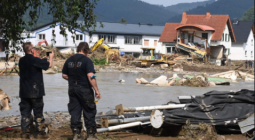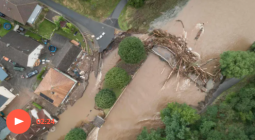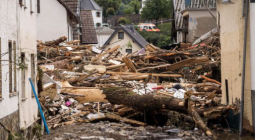Climate scientists shocked by scale of floods in Germany
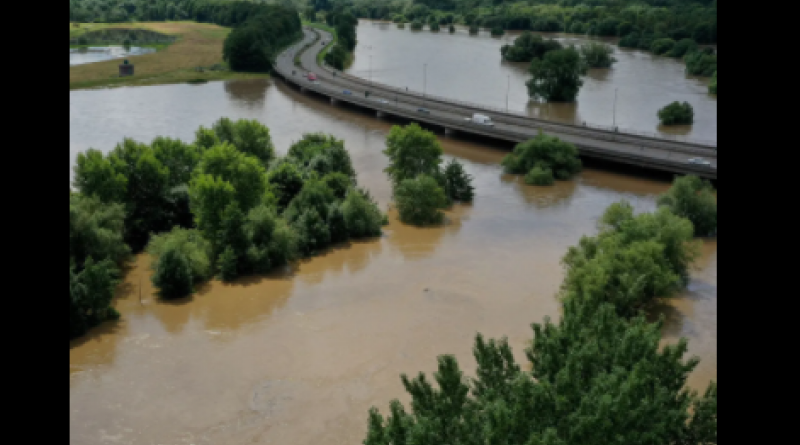
Deluge raises fears human-caused disruption is making extreme weather even worse than predicted.
The intensity and scale of the floods in Germany this week have shocked climate scientists, who did not expect records to be broken this much, over such a wide area or this soon.
After the deadly heatwave in the US and Canada, where temperatures rose above 49.6C two weeks ago, the deluge in central Europe has raised fears that human-caused climate disruption is making extreme weather even worse than predicted.
Precipitation records were smashed across a wide area of the Rhine basin on Wednesday, with devastating consequences. At least 58 people have been killed, tens of thousands of homes flooded and power supplies disrupted.
Parts of Rhineland-Palatinate and North Rhine-Westphalia were inundated with 148 litres of rain per sq metre within 48 hours in a part of Germany that usually sees about 80 litres in the whole of July.
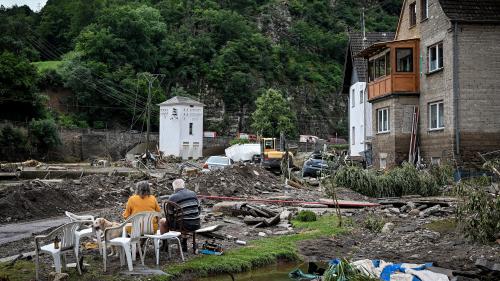
The city of Hagen declared a state of emergency after the Volme burst its banks and its waters rose to levels not seen more than four times a century.
The most striking of more than a dozen records was set at the Köln-Stammheim station, which was deluged in 154mm of rain over 24 hours, obliterating the city’s previous daily rainfall high of 95mm.
Climate scientists have long predicted that human emissions would cause more floods, heatwaves, droughts, storms and other forms of extreme weather, but the latest spikes have surpassed many expectations.
“I am surprised by how far it is above the previous record,” Dieter Gerten, professor of global change climatology and hydrology at the Potsdam Institute for Climate Impact Research, said. “We seem to be not just above normal but in domains we didn’t expect in terms of spatial extent and the speed it developed.”
Gerten, who grew up in a village in the affected area, said it occasionally flooded, but not like this week. Previous summer downpours have been as heavy, but have hit a smaller area, and previous winter storms have not raised rivers to such dangerous levels. “This week’s event is totally untypical for that region. It lasted a long time and affected a wide area,” he said.
Scientists will need more time to assess the extent to which human emissions made this storm more likely, but the record downpour is in keeping with broader global trends.
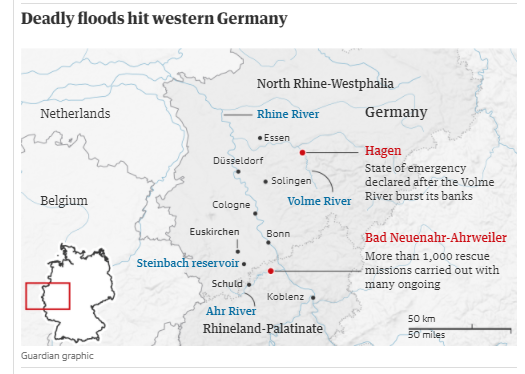
“With climate change we do expect all hydro-meteorological extremes to become more extreme. What we have seen in Germany is broadly consistent with this trend.” said Carlo Buontempo, the director of the Copernicus Climate Change Service at the European Centre for Medium-Range Weather Forecasts.
The seven hottest years in recorded history have occurred since 2014, largely as a result of global heating, which is caused by engine exhaust fumes, forest burning and other human activities. Computer models predict this will cause more extreme weather, which means records will be broken with more frequency in more places.
The Americas have been the focus in recent weeks. The Canadian national daily heat record was exceeded by more than 5C two weeks ago, as were several local records in Oregon and Washington. Scientists said these extremes at such latitudes were virtually impossible without human-driven warming. Last weekend, the monitoring station at Death Valley in California registered 54.4C, which could prove to be the highest reliably recorded temperature on Earth.
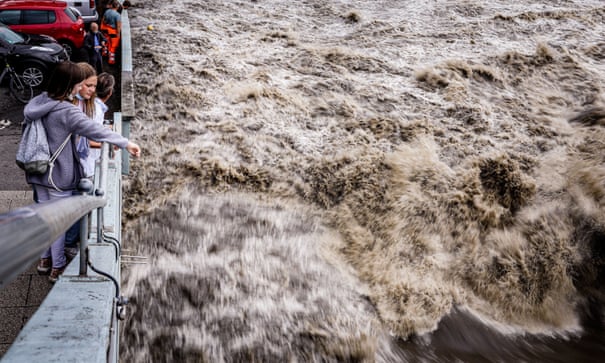
Daniel Swain, a climate scientist at the University of California in Los Angeles, said so many records were being set in the US this summer that they no longer made the news: “The extremes that would have been newsworthy a couple of years ago aren’t, because they pale in comparison to the astonishing rises a few weeks ago.” This was happening in other countries too, he said, though with less media attention. “The US is often in the spotlight, but we have also seen extraordinary heat events in northern Europe and Siberia. This is not a localised freak event, it is definitely part of a coherent global pattern.”
The far north of Europe also sweltered in record-breaking June heat, and cities in India, Pakistan and Libya have endured unusually high temperatures in recent weeks. Suburbs of Tokyo have been drenched in the heaviest rainfall since measurements began and a usual month’s worth of July rain fell on London in a day. Events that were once in 100 years are becoming commonplace. Freak weather is increasingly normal.
Some experts fear the recent jolts indicate the climate system may have crossed a dangerous threshold. Instead of smoothly rising temperatures and steadily increasing extremes, they are examining whether the trend may be increasingly “nonlinear” or bumpy as a result of knock-on effects from drought or ice melt in the Arctic. This theory is contentious, but recent events have prompted more discussion about this possibility and the reliability of models based on past observations.
“We need to better model nonlinear events,” said Gerten. “We scientists in recent years have been surprised by some events that occurred earlier and were more frequent and more intense than expected.”
-
This article was amended to remove an outdated regional name.
July 2021
The Guardian

